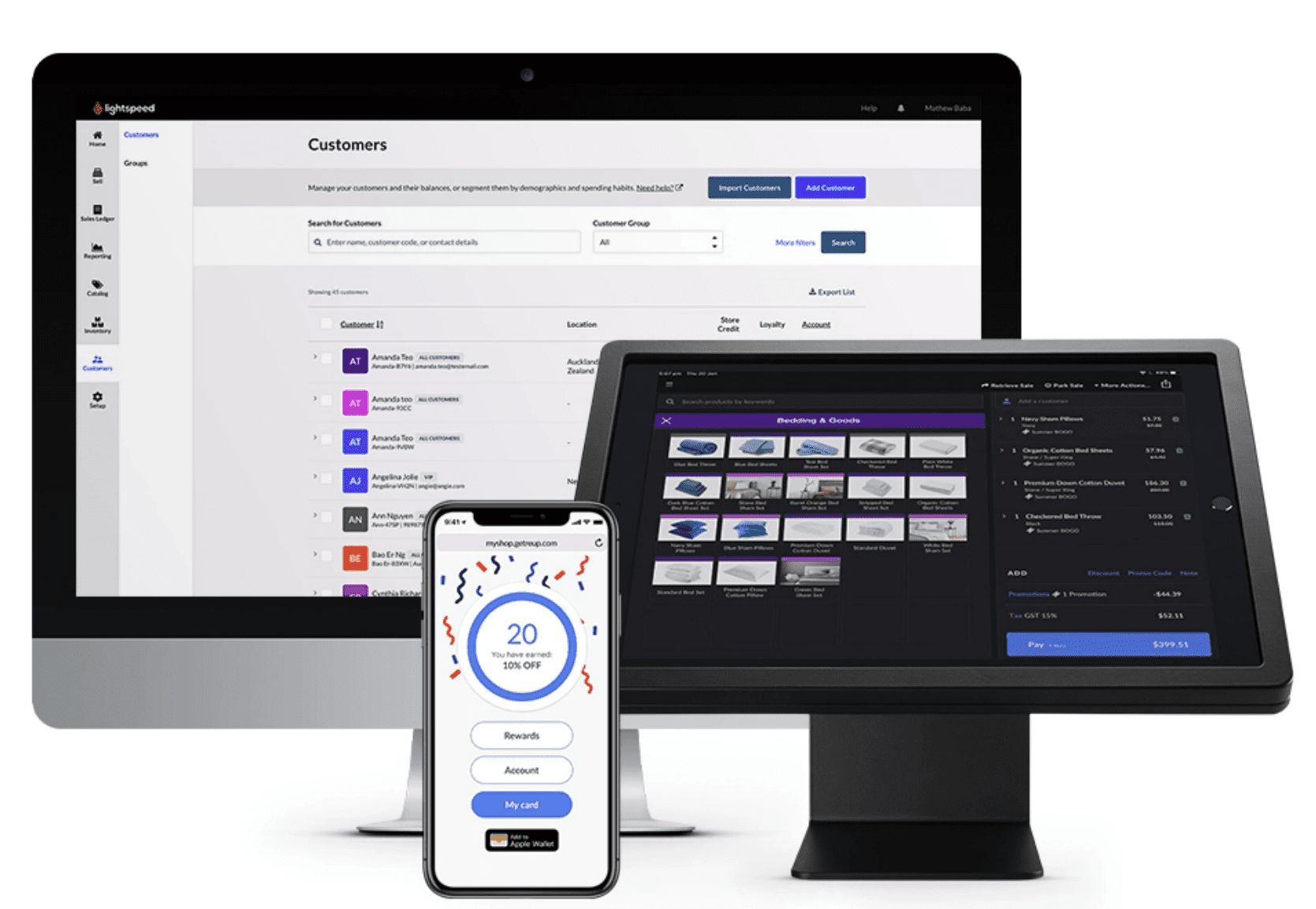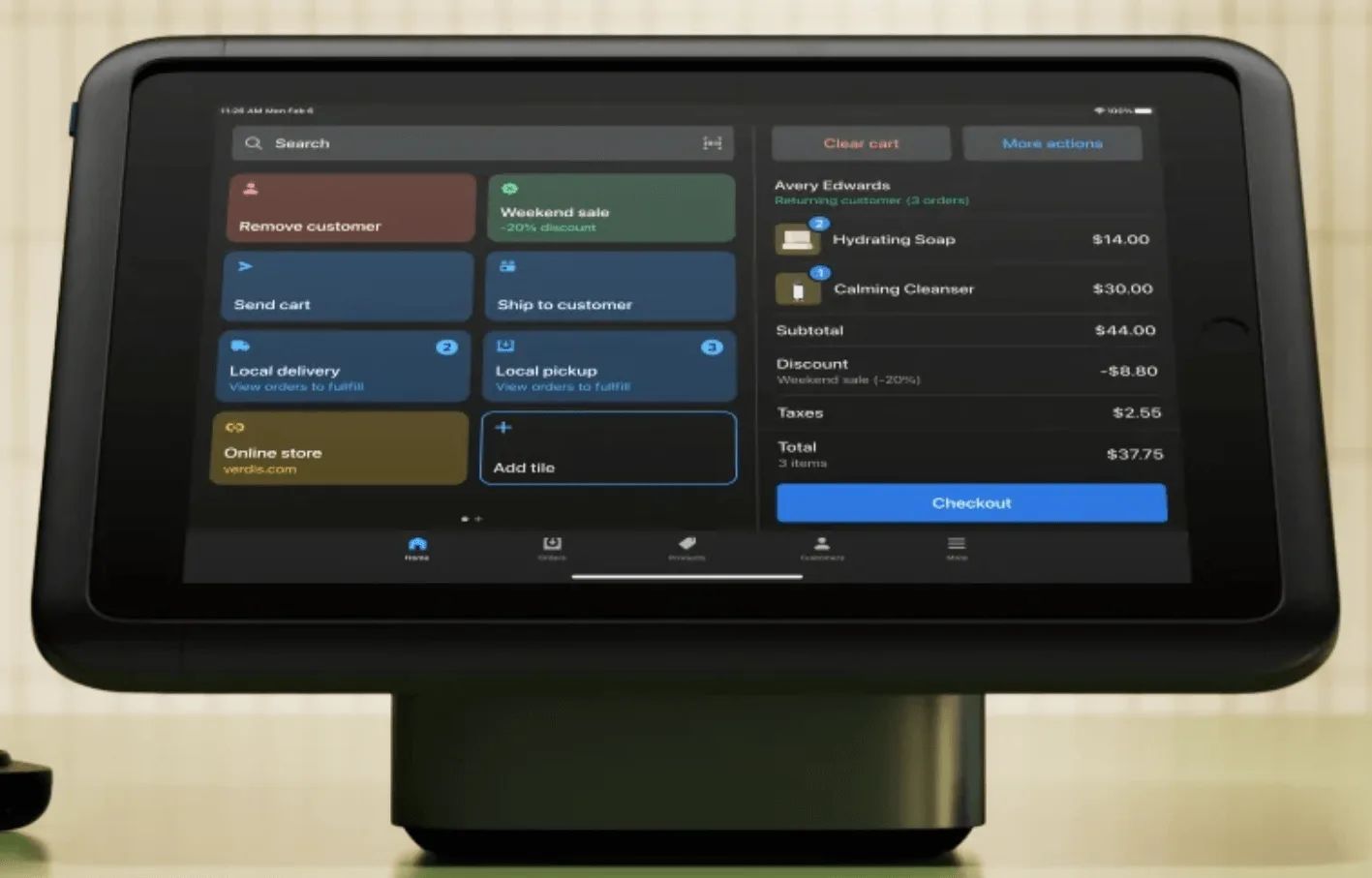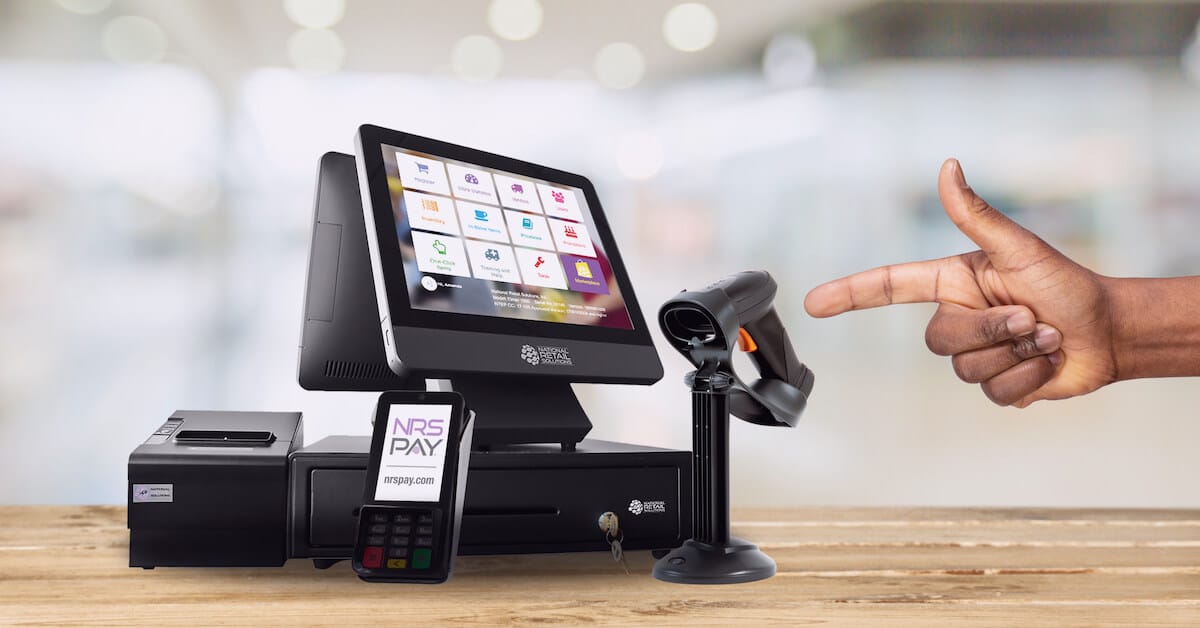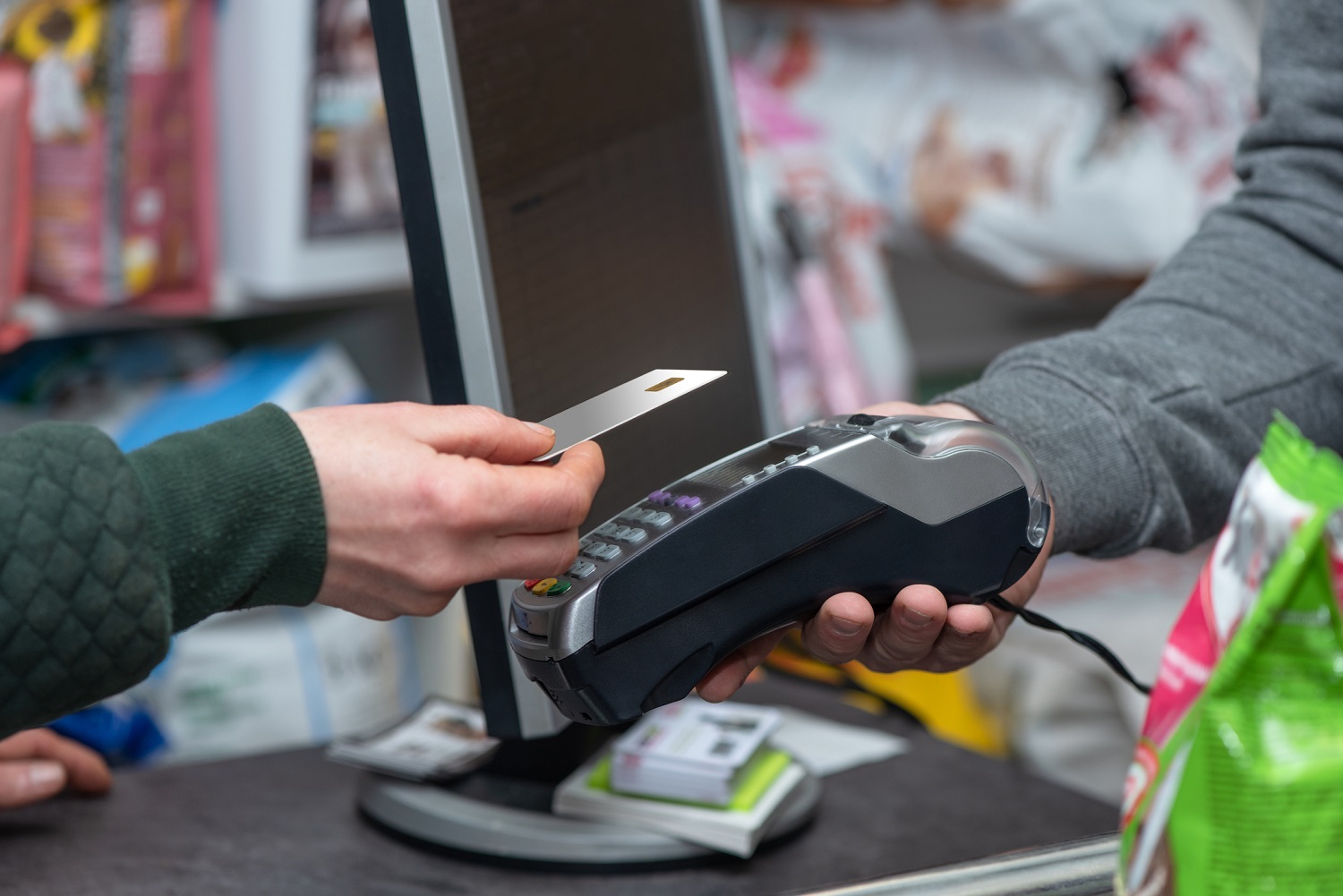Introduction
In the modern era of technology, businesses are constantly looking for innovative solutions to streamline their operations and provide better customer service. In the restaurant industry, one of the most important tools that restaurants utilize is a Point of Sale (POS) system. These systems have revolutionized the way restaurants handle payments, manage inventory, and track sales.
Olive Garden, a popular Italian-American restaurant chain, is no exception when it comes to harnessing the power of POS systems. With over 800 locations across the United States and Canada, Olive Garden relies on an efficient and reliable POS system to deliver exceptional dining experiences to its customers.
By understanding the benefits and features of the POS system used by Olive Garden, we can gain valuable insights into how this technology enhances the restaurant’s operations and why it is a crucial component of their success. In this article, we will dive into the world of POS systems and explore how they contribute to Olive Garden’s efficiency and customer satisfaction.
Overview of POS Systems
Before delving into the specific POS system used by Olive Garden, it is essential to have a comprehensive understanding of what POS systems are and how they function.
A Point of Sale (POS) system is a computerized system used by businesses to facilitate transactions, manage inventory, and track sales. In the context of the restaurant industry, a POS system is typically comprised of hardware and software components that work together seamlessly to streamline restaurant operations and improve efficiency.
The primary function of a POS system is to process payments. Gone are the days of traditional cash registers and manual calculations; POS systems have revolutionized the way restaurants handle transactions. Nowadays, most POS systems are equipped with credit card processing capabilities, allowing customers to pay conveniently using various payment methods, including credit/debit cards, mobile wallets, and even contactless payments.
However, a POS system encompasses much more than just payment processing. It acts as a central hub for restaurant management, providing tools to monitor and control inventory. With a POS system, restaurants can easily track food and beverage stock levels, create purchase orders, and generate real-time reports on inventory usage and depletion.
Another crucial aspect of a POS system is its ability to track sales and generate insightful reports. Restaurant owners and managers can access detailed sales data, including revenue, average order value, and sales trends. These reports provide valuable insights into customer preferences, popular menu items, and revenue patterns, allowing restaurants to make data-driven decisions regarding menu offerings, marketing strategies, and pricing.
Furthermore, POS systems often offer additional features such as table management, order tracking, and customer relationship management. These capabilities help restaurants streamline their operations, provide better customer service, and enhance overall efficiency.
In the next section, we will examine why POS systems are so critical to the success of the restaurant industry and why Olive Garden, in particular, relies on this technology.
Importance of POS Systems in the Restaurant Industry
In the fiercely competitive restaurant industry, efficiency and effective management are key to success. This is where Point of Sale (POS) systems play a crucial role. POS systems offer numerous benefits to restaurants, making them an essential tool for streamlining operations and delivering exceptional customer service.
One of the primary reasons why POS systems are so important in the restaurant industry is their ability to handle transactions efficiently. With integrated payment processing capabilities, POS systems enable restaurants to accept various payment methods, including credit/debit cards, mobile payments, and gift cards. This not only speeds up the payment process but also reduces the risk of human errors and ensures accurate recording of transactions.
POS systems also provide robust inventory management features. Tracking inventory manually can be a time-consuming and error-prone task. However, POS systems automate this process by keeping real-time records of stock levels, automatically adjusting inventory when an item is sold, and generating alerts when stock levels are low. This helps restaurants optimize inventory levels, reduce waste, and ensure that popular menu items are always available.
Furthermore, POS systems enable restaurants to track sales and generate comprehensive reports. These reports offer valuable insights into sales trends, customer preferences, and menu performance. By analyzing this data, restaurant owners and managers can make informed decisions about menu rotations, pricing strategies, and marketing campaigns. This data-driven approach helps maximize profitability and customer satisfaction.
POS systems also improve table management and order accuracy. With features such as table mapping and order tracking, restaurants can easily manage seating arrangements, track the progress of orders, and ensure that meals are delivered to the right tables promptly. This efficiency enhances the overall dining experience and contributes to customer satisfaction.
Moreover, POS systems often offer customer relationship management (CRM) tools. These tools allow restaurants to collect customer data, track dining preferences, and deliver personalized experiences. With a POS system, restaurants can offer loyalty programs, send targeted promotions, and build strong customer relationships, ultimately fostering customer loyalty and repeat business.
In summary, POS systems are vital for the success of restaurants in the modern era. From processing transactions and managing inventory to analyzing sales data and enhancing customer service, POS systems provide restaurants with the necessary tools to streamline operations, optimize efficiency, and deliver unforgettable dining experiences.
What is Olive Garden?
Olive Garden is a popular Italian-American casual dining restaurant chain that was founded in 1982. With over 800 locations across the United States and Canada, Olive Garden has become a household name known for its warm hospitality, generous portions, and flavorful Italian-inspired dishes.
The concept behind Olive Garden revolves around creating a welcoming and family-friendly atmosphere where guests can enjoy a diverse menu of Italian classics and contemporary American dishes. From pasta and seafood to steak and salads, Olive Garden offers a wide range of options to cater to different tastes and preferences.
One of the key aspects that sets Olive Garden apart is its dedication to providing a memorable dining experience. The restaurant’s “Hospitaliano” philosophy centers around genuine hospitality, where every guest is treated like family. The servers are trained to provide attentive and personalized service, ensuring that guests feel valued and well taken care of during their visit.
At Olive Garden, the focus is not just on the food but also on creating a comfortable and inviting ambiance. The restaurants are designed with warm colors, cozy seating, and Italian-inspired décor, evoking a sense of hominess and authenticity. The goal is to make guests feel as if they have stepped into an Italian trattoria, where they can relax, savor delicious food, and enjoy the company of their loved ones.
Additionally, Olive Garden is committed to quality and freshness. The restaurant takes pride in sourcing high-quality ingredients and preparing each dish with care. Whether it’s the classic Chicken Alfredo or the famous unlimited breadsticks and salad, Olive Garden strives to deliver flavors that satisfy and create lasting memories.
Beyond its dedication to exceptional food and service, Olive Garden also actively engages with the community through various philanthropic initiatives. The restaurant chain supports local charitable organizations and actively contributes to hunger relief efforts, making a positive impact beyond the dining table.
Overall, Olive Garden is a beloved restaurant known for its delicious Italian-American cuisine, warm hospitality, and commitment to creating moments of joy for its guests. By combining quality food, attentive service, and a welcoming ambiance, Olive Garden has earned a reputation as a go-to destination for satisfying meals and cherished memories.
Why Olive Garden Uses POS Systems
Olive Garden, like many other successful restaurant chains, recognizes the importance of utilizing Point of Sale (POS) systems to enhance their operations and improve overall efficiency. There are several key reasons why Olive Garden relies on POS systems:
Streamlining Payment Processing: One of the primary reasons why Olive Garden uses POS systems is to streamline payment processing. With integrated payment capabilities, POS systems allow Olive Garden to accept multiple forms of payment, including credit/debit cards, mobile wallets, and gift cards. This not only speeds up the payment process but also ensures accurate and secure transactions, reducing the risk of human error and providing a seamless dining experience for guests.
Efficient Order Management: POS systems enable Olive Garden to efficiently manage orders and ensure accuracy in food preparation. With table mapping and order tracking features, staff can easily monitor and update the status of each order, ensuring that meals are delivered to the right tables promptly. This reduces confusion, enhances kitchen communication, and ultimately improves overall dining efficiency.
Inventory Control and Management: POS systems play a crucial role in helping Olive Garden maintain better control over their inventory. By automatically tracking stock levels and generating real-time reports, the POS system allows Olive Garden to optimize inventory levels, reduce waste, and ensure that popular menu items are always available. This helps to minimize food shortages and provides a consistent dining experience for guests.
Data Analysis and Reporting: POS systems provide Olive Garden with valuable data analysis and reporting capabilities. The system generates detailed reports that highlight sales trends, customer preferences, and menu performance. By analyzing this data, Olive Garden can make data-driven decisions regarding menu offerings, pricing strategies, and marketing campaigns. This enables the restaurant to cater to guest preferences and maximize profitability.
Enhanced Customer Relationship Management: POS systems offer Olive Garden robust customer relationship management (CRM) tools. These tools enable the restaurant to collect customer data, track dining preferences, and personalize the guest experience. Olive Garden can create loyalty programs, send targeted promotions, and build strong customer relationships. This fosters customer loyalty and encourages repeat business, leading to long-term success for the restaurant.
In summary, Olive Garden utilizes POS systems to streamline payment processing, efficiently manage orders, maintain better control over inventory, analyze valuable sales data, and enhance customer relationship management. By leveraging the power of POS technology, Olive Garden ensures smooth operations, optimal efficiency, and outstanding guest experiences.
Benefits of POS Systems for Olive Garden
POS systems bring numerous benefits to Olive Garden, enabling the restaurant chain to operate more efficiently and deliver exceptional customer service. Here are some of the key benefits that Olive Garden enjoys by utilizing POS systems:
Improved Order Accuracy: POS systems help Olive Garden improve order accuracy by eliminating the need for manual order taking and reducing the chances of human error. Orders are directly entered into the system, minimizing miscommunication between servers and kitchen staff, ensuring that guests receive the correct dishes according to their preferences.
Enhanced Efficiency: POS systems streamline Olive Garden’s operations, allowing staff to process orders more quickly and efficiently. With features such as table mapping, order tracking, and automated communication between front-of-house and kitchen staff, Olive Garden can improve overall efficiency, reduce wait times, and enhance the dining experience for guests.
Increased Staff Productivity: POS systems simplify various tasks, such as order entry, order modifications, and splitting checks, enabling Olive Garden’s staff to focus on providing excellent customer service instead of performing time-consuming manual processes. This leads to increased staff productivity and better utilization of resources.
Accurate Inventory Management: POS systems provide Olive Garden with accurate and real-time inventory management capabilities. The system tracks inventory levels, alerts staff when items are running low, and generates reports on stock usage and depletion. By having a clear understanding of inventory levels, Olive Garden can effectively manage supply chain logistics, minimize waste, and ensure that popular menu items are always available.
Comprehensive Reporting and Analytics: POS systems offer in-depth reporting and analytics features that provide Olive Garden with valuable insights into sales trends, customer preferences, and menu performance. By analyzing this data, Olive Garden can make informed decisions about menu rotations, pricing strategies, and marketing campaigns, improving profitability and guest satisfaction.
Enhanced Customer Service: POS systems enable Olive Garden to provide personalized customer service through customer relationship management (CRM) tools. The restaurant can collect and analyze customer data, track dining preferences, and offer tailored promotions or special deals to loyal customers. This enhances the overall dining experience and encourages repeat visits.
Streamlined Payment Processing: POS systems facilitate seamless and secure payment processing at Olive Garden. The integration of payment options allows guests to pay with ease, whether through credit/debit cards, mobile wallets, or gift cards. Faster payment processing reduces wait times for guests, improving overall guest satisfaction.
Overall, POS systems provide Olive Garden with improved order accuracy, increased efficiency, enhanced staff productivity, accurate inventory management, comprehensive reporting capabilities, personalized customer service, and streamlined payment processing. These benefits contribute to Olive Garden’s success in delivering exceptional dining experiences to its guests.
Features of the POS System Used by Olive Garden
The POS system used by Olive Garden is equipped with a range of features that cater specifically to the needs of the restaurant chain. These features work together to streamline operations, enhance efficiency, and deliver exceptional dining experiences. Here are some key features of the POS system used by Olive Garden:
Integrated Payment Processing: The POS system used by Olive Garden offers seamless and integrated payment processing capabilities. It allows guests to pay using various methods, including credit/debit cards, mobile wallets, and gift cards. The system ensures secure and accurate transactions, providing a smooth and effortless payment experience for both guests and staff.
Table Management: Olive Garden’s POS system includes a table management feature that enables efficient management of seating arrangements. The system provides a visual layout of the restaurant floor plan, allowing staff to assign tables to guests and track their status. This feature helps to optimize seating capacity, minimize wait times, and ensure smoother table turnovers.
Order Tracking: The POS system allows Olive Garden to track orders from submission to delivery. It provides real-time status updates, allowing servers and kitchen staff to monitor the progress of each order. This feature enables better coordination between front-of-house and kitchen teams, ensuring timely and accurate food preparation and delivery.
Inventory Management: The POS system used by Olive Garden includes robust inventory management capabilities. It tracks inventory levels, automatically adjusts stock when items are sold, and generates alerts when supplies are running low. Olive Garden can easily manage their inventory, track ingredient usage, and optimize stock levels to ensure menu availability and reduce waste.
Menu Customization: Olive Garden’s POS system allows for easy menu customization. It enables Olive Garden to modify and update their menu offerings, including special promotions, seasonal items, and limited-time offers. This flexibility ensures that the menu is always up-to-date and reflects the preferences and demands of guests.
Reporting and Analytics: The POS system generates comprehensive reports and analytics that provide Olive Garden with valuable insights into their operations. These reports cover various aspects, such as sales data, customer preferences, and inventory usage. Olive Garden can analyze this information to make data-driven decisions, optimize menu offerings, and enhance overall profitability.
Loyalty Program Integration: Olive Garden’s POS system integrates with their loyalty program, allowing the restaurant to reward and recognize loyal customers. The system captures guest information and tracks their dining preferences, enabling Olive Garden to offer personalized promotions and incentives. This feature helps to foster customer loyalty and create a more personalized dining experience.
Seamless Integration with Online Ordering: The POS system used by Olive Garden seamlessly integrates with their online ordering platform. This integration allows customers to place orders online and have them seamlessly integrated into the restaurant’s POS system. It streamlines the online ordering process, minimizes errors, and ensures efficient order management.
In summary, the POS system used by Olive Garden offers integrated payment processing, table management, order tracking, robust inventory management, menu customization, reporting and analytics, loyalty program integration, and seamless integration with online ordering. These features work together to streamline operations, enhance efficiency, and deliver exceptional dining experiences for Olive Garden guests.
How the POS System is Integrated into Olive Garden’s Operations
The POS system used by Olive Garden is seamlessly integrated into various aspects of the restaurant’s operations, playing a vital role in streamlining processes and enhancing efficiency. Here is an overview of how the POS system is integrated into Olive Garden’s operations:
Order Management: When a guest places an order, the Olive Garden staff enters it directly into the POS system. The system tracks and updates the order status, allowing both the front-of-house and kitchen staff to monitor the progress of each order. This integration ensures effective communication, reduces errors, and ensures that orders are prepared and delivered promptly.
Inventory Control: Olive Garden’s POS system is seamlessly integrated into the restaurant’s inventory management process. The system tracks and deducts inventory automatically as orders are processed. This integration allows Olive Garden to keep real-time records of ingredient usage, monitor inventory levels, and generate alerts when supplies are running low, ensuring optimal inventory control and preventing stockouts.
Menu Management: The POS system plays a crucial role in Olive Garden’s menu management. The system allows Olive Garden to easily update and customize their menu offerings, including limited-time promotions, seasonal items, and new menu additions. This integration ensures that the menu is always up-to-date and accurately reflects the restaurant’s offerings.
Payment Processing: Olive Garden’s POS system seamlessly integrates with their payment processing infrastructure. When guests are ready to pay, the system provides an effortless payment experience by accepting various payment methods, including credit/debit cards, mobile wallets, and gift cards. The integration ensures secure and accurate transactions, minimizing potential errors and providing a smooth and efficient payment process.
Reporting and Analytics: As part of Olive Garden’s operations, the POS system generates comprehensive reports and analytics. These reports provide insights into sales trends, inventory usage, and customer data. The integration of the POS system’s reporting capabilities allows Olive Garden to analyze this data and make informed decisions regarding menu optimizations, marketing strategies, and operational adjustments.
Loyalty Program Integration: Olive Garden’s POS system seamlessly integrates with their loyalty program. When guests provide their loyalty program information, the system captures and updates their data, allowing Olive Garden to track their dining preferences and provide personalized offers. This integration enhances the customer experience and enables Olive Garden to reward and recognize their loyal guests.
Online Ordering Integration: Olive Garden’s POS system is integrated with their online ordering platform. When customers place orders online, the system seamlessly incorporates these orders into the restaurant’s operational workflow. This integration eliminates the need for manual entry of online orders, reducing the risk of errors and ensuring efficient order management.
Overall, the POS system used by Olive Garden is integrated into every aspect of their operations, from order management and inventory control to menu management, payment processing, reporting and analytics, loyalty program integration, and online ordering. This integration enables Olive Garden to maximize efficiency, enhance guest satisfaction, and deliver exceptional dining experiences.
Conclusion
Pos System plays a crucial role in the success of Olive Garden, the popular Italian-American restaurant chain. By utilizing a reliable and efficient POS system, Olive Garden is able to streamline their operations, enhance efficiency, and deliver exceptional dining experiences to their guests. The integration of the POS system into Olive Garden’s operations brings numerous benefits for both the restaurant and its customers.
POS systems enable Olive Garden to process payments seamlessly, reducing wait times and ensuring accurate transaction recording. The systems also offer robust inventory management capabilities, allowing Olive Garden to optimize stock levels, minimize waste, and ensure popular menu items are always available. Additionally, the reporting and analytics features provided by the POS system offer valuable insights into sales trends, customer preferences, and menu performance, enabling Olive Garden to make data-driven decisions to maximize profitability.
The POS system used by Olive Garden is seamlessly integrated into their operations, including order management, inventory control, menu management, payment processing, reporting, and analytics, loyalty program integration, and online ordering. This integration ensures smooth communication and coordination between staff members, minimizes errors, and enhances overall efficiency.
In conclusion, the POS system used by Olive Garden serves as a powerful tool that enables the restaurant chain to operate more efficiently, provide exceptional customer service, and maximize profitability. By leveraging the features and benefits offered by their POS system, Olive Garden continues to uphold their reputation as a beloved dining destination, delivering delicious Italian-American cuisine and creating memorable experiences for their guests.

























